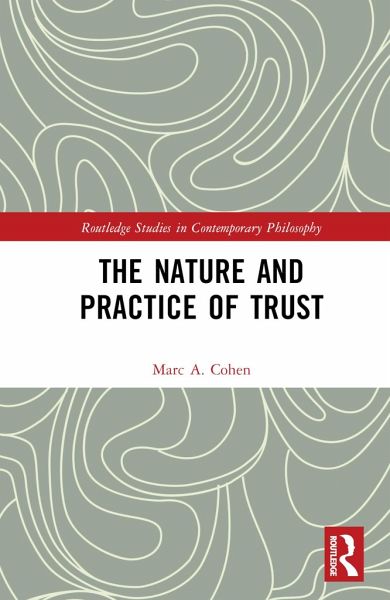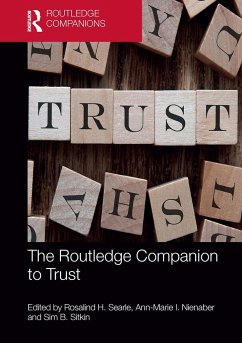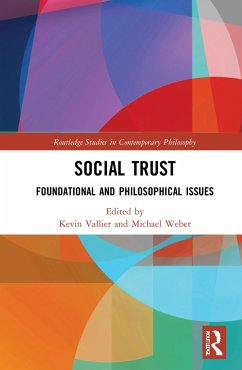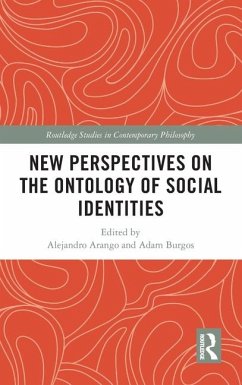
The Nature and Practice of Trust
Versandkostenfrei!
Versandfertig in 6-10 Tagen
133,99 €
inkl. MwSt.
Weitere Ausgaben:

PAYBACK Punkte
67 °P sammeln!
Across the social sciences and even in philosophy, trust is most often characterized in terms of expectations and probabilities. This book defends an alternative conception of trust as a moral phenomenon.When one person trusts another to do something, the first relies on the second's commitment(s). So, trust reflects-and is a product of-agreement about the commitments and obligations that bind persons who live and work together. These commitments and obligations can be implicit, but building (or rebuilding) trust often requires making these commitments and obligations explicit, defining the te...
Across the social sciences and even in philosophy, trust is most often characterized in terms of expectations and probabilities. This book defends an alternative conception of trust as a moral phenomenon.
When one person trusts another to do something, the first relies on the second's commitment(s). So, trust reflects-and is a product of-agreement about the commitments and obligations that bind persons who live and work together. These commitments and obligations can be implicit, but building (or rebuilding) trust often requires making these commitments and obligations explicit, defining the terms of cooperation. Part 1 argues that this account of trust better captures our actual trust practices, and it draws out connections with both the philosophy and the social science literatures. It also describes the process of creating trust relationships with reference to trust invitations. Part 2 addresses practical applications of the account defended here, in the context ofsocial relationships, economic systems, and within business organizations. These applications emphasize the material benefits of trust but, separate from those, Part 2 argues that trust is an intrinsic good-so we have moral reason to trust.
The Nature and Practice of Trust will appeal to scholars and advanced students working in ethics, social and political philosophy, and the social sciences.
Chapter 6 of this book is available for free in PDF format as Open Access from the individual product page at www.routledge.com. It has been made available under a Creative Commons Attribution-Non Commercial-No Derivatives 4.0 license.
When one person trusts another to do something, the first relies on the second's commitment(s). So, trust reflects-and is a product of-agreement about the commitments and obligations that bind persons who live and work together. These commitments and obligations can be implicit, but building (or rebuilding) trust often requires making these commitments and obligations explicit, defining the terms of cooperation. Part 1 argues that this account of trust better captures our actual trust practices, and it draws out connections with both the philosophy and the social science literatures. It also describes the process of creating trust relationships with reference to trust invitations. Part 2 addresses practical applications of the account defended here, in the context ofsocial relationships, economic systems, and within business organizations. These applications emphasize the material benefits of trust but, separate from those, Part 2 argues that trust is an intrinsic good-so we have moral reason to trust.
The Nature and Practice of Trust will appeal to scholars and advanced students working in ethics, social and political philosophy, and the social sciences.
Chapter 6 of this book is available for free in PDF format as Open Access from the individual product page at www.routledge.com. It has been made available under a Creative Commons Attribution-Non Commercial-No Derivatives 4.0 license.














